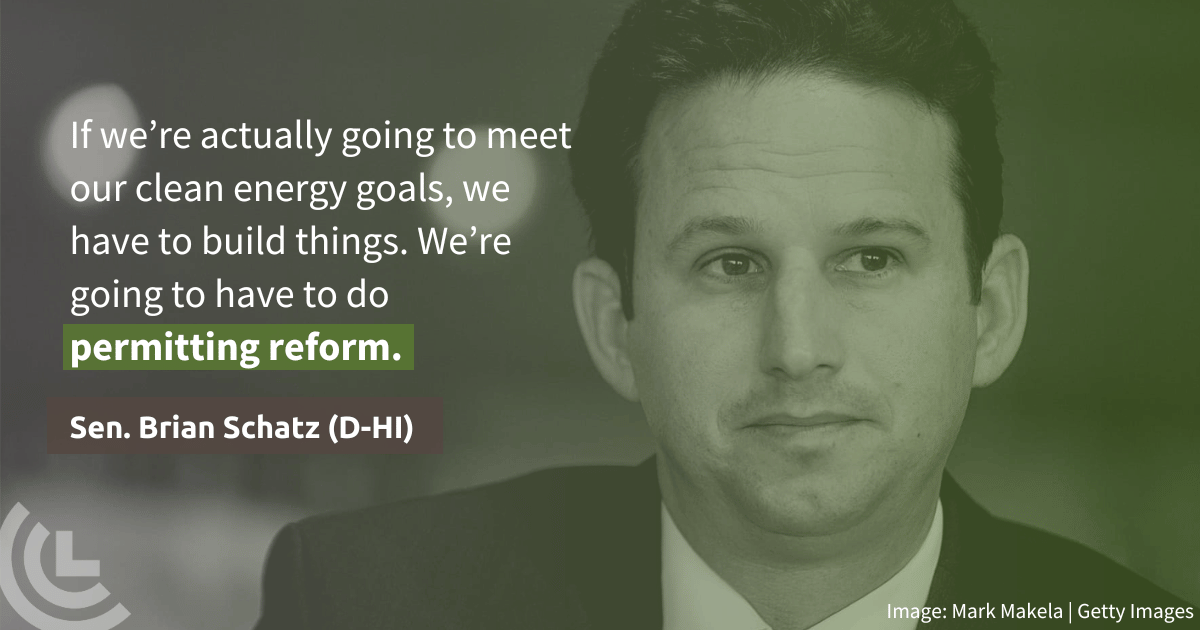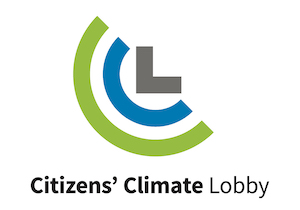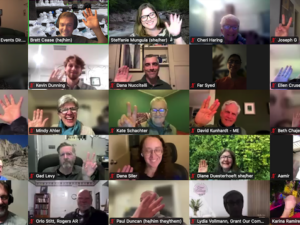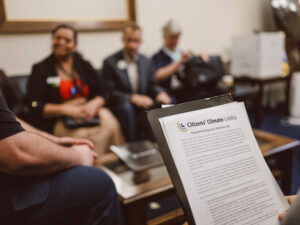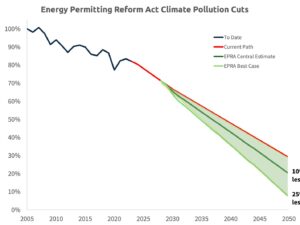Imagine a world powered by clean energy. Energy that doesn’t put harmful particulates into the air we breathe. Energy that can be made here at home, and is affordable and abundant. Energy that doesn’t blanket the earth with heat-trapping greenhouse gases, warming up our planet. Sounds pretty good, right? (Unless you’re some kind of cartoon villain, we’ll assume you agree.)
The good news is that clean energy technologies exist and are ready to be deployed! In December, the International Energy Agency said renewables are set to grow as much in the next five years as they did in the last 20. New analysis confirms we have enough materials to power the world with renewable energy.
So what’s the holdup? Well, in the U.S. we have a bottleneck that’s constraining clean energy projects. “The project backup has grown substantially over the past year, especially among proposed solar and battery storage projects,” Dana Nuccitelli, CCL Research Coordinator, said in a recent post on the CCL Community Nerd Corner.
According to an updated analysis published by Lawrence Berkeley National Lab, there now are over 2 terawatts of total generation and storage capacity now seeking connection to the grid, over 95% of which is for zero-carbon resources like solar, wind, and battery storage.
“There’s nearly a terawatt (947 gigawatts, to be precise) of proposed solar projects alone waiting for the green light,” Dana explains. “For comparison, the entire U.S. installed power capacity right now is 1.25 terawatts.”
Sometimes the bottleneck is so bad that clean energy projects aren’t just slowed down — they’re stopped completely. “Only about 21% of projects (and 14% of potential capacity) requesting interconnection from 2000 to 2017 reached commercial operations by the end of 2022,” Dana points out.
What’s the solution?
The solution is to update our energy permitting processes, which will largely benefit clean energy projects. Reports from the U.S. Energy Information Administration find that in each of the past three years, 84% of new energy capacity was clean energy. More than 95% of new energy projects currently awaiting permits are solar and wind and battery storage, and less than 5% are natural gas.
Sen. Brian Schatz (D-HI) put it pretty clearly on Twitter: “If we’re actually going to meet our clean energy goals, we have to build things. We’re going to have to do permitting reform.”
Rep. John Curtis (R-UT-03) shared a similar message in a public event last fall, saying, “We all agree, permitting reform needs to be done, and I think we can get it across the finish line.”
Sen. Angus King (I-ME) and Rep. Scott Peters (D-CA-50) said it too, in an opinion piece for TIME. “In this Congress, our focus must be on how to plan, permit, and approve climate action projects much faster than America is used to.”
That speed is critical. We can build clean energy projects faster by speeding up review times, while preserving review quality. Currently, it takes an average of 4.5 years for federal agencies to complete environmental impact statements for major energy projects. We should make reforms to the process that speed up these timelines without approving or rubber-stamping harmful energy projects.
And in addition to building clean energy projects, we’ve also got to connect them to the grid. In the past decade, the U.S. has expanded our electricity transmission infrastructure at a pace of just 1% per year. We have to speed that up — ultimately, we need to triple our current capacity to transmit clean electricity by 2050.
How you can help
Clearly, it’s critical that permitting processes be updated. Lawmakers on both sides of the aisle are putting proposals forward, and industry is at the table too. That means it’s especially important for groups like ours to be involved and help ensure that any permitting updates are the best they can be for people and for the planet.
This topic will be the major focus of our lobbying on Capitol Hill in June. Join us in D.C. June 10-13 to help push the conversation in the right direction!
Let’s Reform America’s Clean Energy Permitting Process

